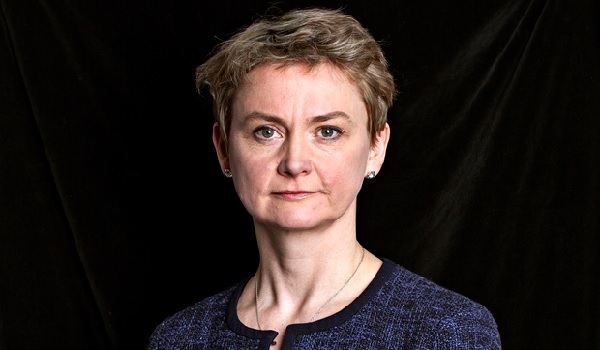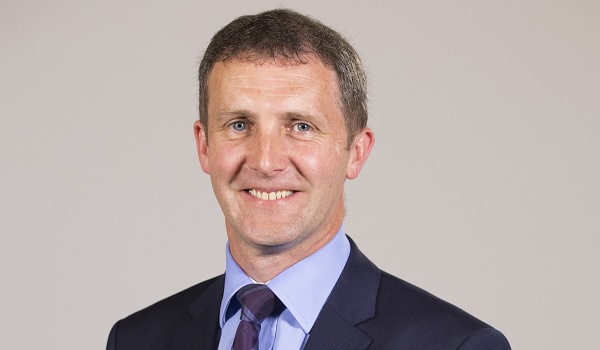MPs demand changes to domestic abuse and stalking reforms
The Government’s approach to domestic abuse has been criticised by MPs who are demanding further action to implement more effective scrutiny of domestic abuse reforms.
The Home Affairs Select Committee (HASC) has urged the Government to amend proposals being implemented as part of a new Bill after it heard concerns over how a new Domestic Abuse Commissioner would operate.
The HASC proposed widening the commissioner’s remit to be responsible for all aspects under the Violence Against Women and Girls (VAWG) strategy.
In its report published on Monday (October 22), the committee also called for a register for serial stalkers and domestic abusers to be introduced “as a matter of urgency”.
The coverage of Independent Domestic Violence Advisors (IDVA’s) has also come into question, as this key strand of the VAWG strategy is only running at 75 per cent of capacity.
The committee also urged the Government to make a commitment to put a statutory obligation on local authorities in England and Wales to provide emergency refuge places and to provide more oversight and funding.
Labour MP Yvette Cooper, chair of the HASC, said: “Domestic abuse is one of the most dangerous and the most common crimes there is.
“The Government is rightly proposing new legislation and a new strategy, but our inquiry found much stronger action is needed across the board.”
HASC recommended that the Government review its proposals to create a new Domestic Abuse Commissioner, to strengthen their remit and increase the resources given to them.
It also said that it is essential the new commissioner is fully independent of Government and should therefore be accountable, and report directly, to Parliament.
They should also be independently accommodated and resourced, the report added.
The Commissioner will oversee and monitor the provision of domestic abuse services in England and Wales and have a budget of £1million a year and 15 staff.
HASC recommended that a balance be struck between empowering the new commissioner enough to make national domestic abuse services more effective and efficient, without encroaching on the remits of scrutiny regimes already in existence, such as police and crime commissioners (PCCs).
The Office of the Merseyside PCC expressed the need “for clear guidance” to ensure there is no duplication of responsibilities and powers.
Transform Justice, a charity that commissions and publishes research and lobbies for criminal justice reforms, said: “We believe such a role would duplicate the functions of other organisations and ‘tsars. There is already a Victims’ Commissioner, who represents the interests of victims of domestic abuse.”
It said: “The risk of creating a new post is that the incumbent is likely either to duplicate, tread on toes or prompt existing stakeholders to absolve themselves of responsibility. Instead the Home Office should review how domestic abuse policy is coordinated and ensure that mechanisms are available for legitimate challenge.”
However, the Office of the Police and Crime Commissioner for Northumbria stated that the existing Children’s Commissioner has a wide reach with powers of influence that allow her “to reach across statutory agencies and address pressing issues”, adding that these powers should also be available to the Domestic Abuse Commissioner.
HASC supported the submission by Refuge, which argued that, due to the “overlapping and interlinked nature of the different forms of violence against women and girls”, the appointment of a VAWG Commissioner rather than a Domestic Abuse Commissioner “would be more effective in driving progress for survivors”.
Yvette Cooper MP said: “Two women a week are killed by a partner or ex, yet around 90 women & 90 children are turned away from refuges each day. There is an urgent need for statutory refuge provision & ringfenced Government funding so every victim has a safe place to go.”
The End Violence Against Women Coalition said: “We welcome the creation of a new independent commissioner in this area. But, if the new commissioner’s brief is limited to domestic violence only, they will be out of step with the established national policy framework in this area.”
HASC proposed the new commissioner review the coverage currently offered by Independent Domestic Violence Advisors (IDVA’s) as there are only 75 per cent in post, although their provision is a core tenet of the VAWG strategy.
It recommended that the new commissioner should evaluate the capacity of the IDVA network nationally and recommend ways to increase coverage.
A national register of serial stalkers and domestic violence perpetrators, as recommended by Paladin, a national stalking advocacy service, should be managed through multi-agency public protection arrangements (MAPPA), in the same way registered sex offenders are monitored, HASC said.
The Government responded to this proposal for a national register by saying that making improvements to how it manages serial domestic abusers and stalkers is high on its agenda, and that it is reviewing in detail the current framework and agrees that there is room for more improvements in information sharing, risk assessment and disclosure.
The committee noted that specialist domestic abuse services available to BAME victims have decreased and highlighted the culturally specific problems experienced by some BAME victims. HASC believes that specialised ‘by and for’ BAME domestic abuse services are required “to win the confidence of BAME victims of abuse, to understand the issues they face and to have the skills and experience to provide the necessary support”.
HASC also criticised reforms of the welfare system and the introduction of Universal Credit as the default single household payment could “reduce the autonomy of some women, make them more vulnerable to abuse and more likely to stay with an abuser”.
The report said payments for all couples in England and Wales should be split, as in Scotland, and “payments made to the main carer by default, after decades in which the importance of independent resource for the main carer has been recognised, appears to be a particularly retrograde and damaging step”.







